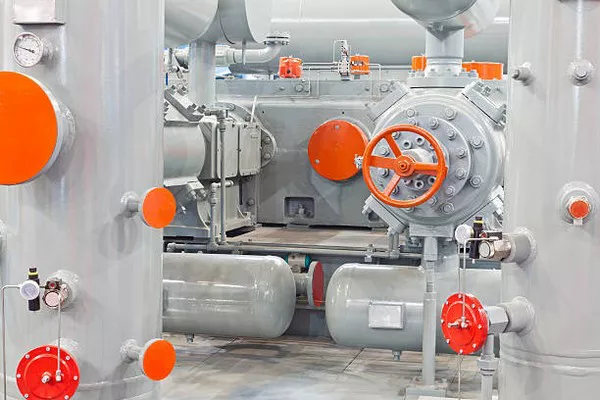In the realm of Heating, Ventilation, and Air Conditioning (HVAC), the compressor stands as a pivotal component that plays a crucial role in the system’s overall functionality. As the heart of the HVAC unit, the compressor works tirelessly to ensure the efficient circulation of refrigerant, facilitating the heat exchange process that enables temperature regulation. In this article, we will delve into the intricacies of what a compressor does in HVAC systems, exploring its functions, types, and significance in maintaining optimal indoor comfort.
The Fundamentals of HVAC Systems
Before delving into the specifics of compressors, it is essential to grasp the basic principles behind HVAC systems. HVAC systems are designed to control and regulate the indoor environment, encompassing both heating and cooling functionalities. These systems maintain comfortable temperature levels, humidity, and air quality within a designated space, whether it be residential, commercial, or industrial.
Key Components of an HVAC System
HVAC systems consist of various components, each serving a specific purpose in the overall process of climate control. These components include the evaporator coil, condenser coil, expansion valve, and the compressor. While all these components play crucial roles, the compressor stands out as the mechanical powerhouse that drives the entire refrigeration cycle.
The Role of the Compressor in HVAC Systems
At its core, the compressor serves as the workhorse responsible for pressurizing and circulating the refrigerant throughout the HVAC system. The refrigerant, typically a fluid with excellent heat-absorbing and heat-releasing properties, undergoes a continuous cycle of compression and expansion. This cycle allows the HVAC system to absorb heat from indoor spaces and release it outside, effectively cooling the indoor environment.
Compression and Circulation
The compressor’s primary function is to compress the low-pressure, low-temperature refrigerant vapor from the evaporator coil into a high-pressure, high-temperature gas. This process significantly increases the refrigerant’s temperature and pressure, transforming it into a state suitable for the next stage of the refrigeration cycle.
Once compressed, the refrigerant exits the compressor as a high-energy, high-temperature gas. It then flows through the condenser coil, releasing heat into the external environment. This phase change from gas to liquid facilitates the transfer of heat from the indoor space to the outdoors, thus cooling the air within.
Types of Compressors in HVAC Systems
Several types of compressors are employed in HVAC systems, each with its own set of advantages and disadvantages. The most common types include reciprocating compressors, rotary compressors, and scroll compressors.
Reciprocating Compressors: These compressors operate by using a piston-cylinder arrangement to compress the refrigerant. Reciprocating compressors are widely used in residential HVAC systems and are known for their simplicity and cost-effectiveness.
Rotary Compressors: Utilizing a rotating mechanism, rotary compressors compress the refrigerant by trapping it in the compression chamber and reducing its volume. These compressors are often found in smaller HVAC units and are appreciated for their compact design and quiet operation.
Scroll Compressors: Scroll compressors consist of two spiral-shaped scrolls—one fixed and one orbiting. As the scrolls move, they create a series of gas pockets that gradually decrease in size, compressing the refrigerant. Scroll compressors are valued for their efficiency and reliability in larger HVAC systems.
Significance of Compressor Efficiency
The efficiency of the compressor is a critical factor in determining the overall performance of an HVAC system. An efficient compressor ensures that the refrigeration cycle operates smoothly, maintaining the desired temperature levels with minimal energy consumption. Compressor efficiency is often measured by its ability to compress the refrigerant with minimal heat loss and mechanical energy input.
Regular Maintenance for Optimal Performance
To ensure the longevity and optimal performance of an HVAC system, regular maintenance of the compressor is essential. Routine checks, such as inspecting refrigerant levels, cleaning coils, and lubricating moving parts, can significantly contribute to the compressor’s efficiency and overall system reliability. Additionally, addressing any issues promptly can prevent costly repairs and extend the lifespan of the entire HVAC unit.
Conclusion
In the complex world of HVAC systems, the compressor stands as a critical component that orchestrates the entire process of temperature regulation. From compressing low-pressure vapor to facilitating heat exchange in the condenser coil, the compressor’s functions are integral to achieving indoor comfort. Understanding the role of the compressor in HVAC systems sheds light on the significance of selecting the right type of compressor and ensuring regular maintenance to sustain efficiency. As technology continues to advance, innovations in compressor design will likely further enhance the overall performance and energy efficiency of HVAC systems, contributing to a more sustainable and comfortable indoor environment.

